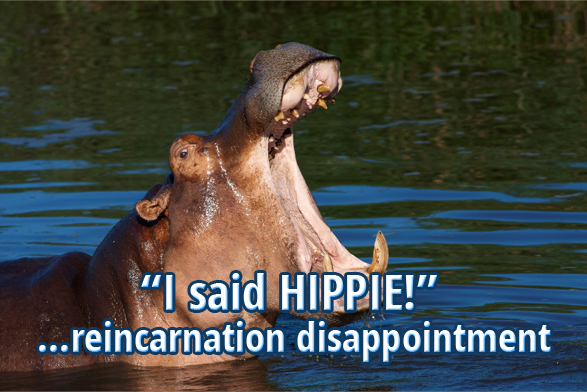Quotations from Scientists & Evolutionists about Darwinian Evolution:


– Dr. Philip S Skell, “Why Do We Invoke Darwin?” Evolutionary theory contributes little to experimental biology,” The Scientist (August 29, 2005),
Dr Marc Kirschner, chair of the Department of Systems Biology, Harvard Medical School, stated: “In fact, over the last 100 years, almost all of biology has proceeded independent of evolution, except evolutionary biology itself. Molecular biology, biochemistry, physiology, have not taken evolution into account at all.”
– Skell, P.S., The Dangers Of Overselling Evolution; Focusing on Darwin and his theory doesn’t further scientific progress, Forbes magazine, 23 Feb 2009
Professor Michael Egnor. Neurosurgeon. Evolution News and Science Today, 14 August 2018.:
Dr. Matti Leisola, Finnish bioengineer and former Dean of Chemistry and Material Sciences at Helsinki University of Technology:
“From my earliest training as a scientist I was very strongly brainwashed to believe that science cannot be consistent with any kind of deliberate creation. That notion has had to be painfully shed. I am quite uncomfortable in this situation, the state of mind I now find myself in. But there is no logical way out of it. I now find myself driven to this position by logic. There is no other way in which we can understand the precise ordering of the chemicals of life except to invoke the creations on a cosmic scale. . . We were hoping as scientists that there would be a way round our conclusion, but there isn’t.” (Sir Frederick Hoyle and Chandra Wickramsinghe, There Must Be A God, Daily Express, Aug. 14, 1981. & Hoyle On Evolution. Nature, Nov. 12, 1981, 105)
“A commonsense interpretation of the facts suggests that a superintellect has monkeyed with physics, as well as chemistry and biology, and that there are no blind forces worth speaking about in nature.” Sir Frederick Hoyle
“The fact of evolution is the backbone of biology, and biology is thus in the peculiar position of being a science founded on an unproved theory, is it then a science or a faith? Belief in the theory is thus exactly parallel to the belief in special creation, both are concepts which believers know to be true but neither, up to the present, has been capable of proof.”
– L Harrison Matthews, Introduction to Charles Darwin, Origin of the Species (1971 edition).
Sir Arthur Keith, a British evolutionary anthropologist and anatomist, stated, “Evolution is unproved and unprovable. We believe it only because the only alternative is special creation, and that is unthinkable.”
“The history of organic life is indemonstrable; we cannot prove a whole lot in evolutionary biology, and our findings will always be hypothesis. There is one true evolutionary history of life, and whether we will actually ever know it is not likely. Most importantly, we have to think about questioning underlying assumptions, whether we are dealing with molecules or anything else.”
– Jeffrey H. Schwartz, Professor of Biological Anthropology, University of Pittsburgh, 2007
“…Every single concept advanced by the theory of evolution (and amended hereafter) is imaginary as it is not supported by the scientifically established facts of microbiology, fossils, and mathematical probability concepts. Darwin was wrong. …The theory of evolution may be the worst mistake in science.”
-I.L. Cohen, in Darwin Was Wrong – A Study in Probabilities.
“I reject evolution because I deem it obsolete, because the knowledge, hard won since 1830, of anatomy, histology, cytology, and embryology, cannot be made to accord with its basic idea.
The foundationless, fantastic edifice of the evolution doctrine would long ago have met with its long deserved fate were it not that the love of fairy tales is so deep-rooted in the hearts of man.”
– Dr Albert Fleischmann. Recorded in Scott M. Huse, “The Collapse of Evolution”, Baker Book House: Grand Rapids (USA), 1983 p:120
http://dissentfromdarwin.org /about/ A list of over a thousand scientists (and the list keeps growing) who are skeptical of claims for the ability of random mutation and natural selection to account for the complexity of life. Careful examination of the evidence for Darwinian theory should be encouraged.
“What is so frustrating for our present purpose is that it seems almost impossible to give any numerical value to the probability of what seems a rather unlikely sequence of events… An honest man, armed with all the knowledge available to us now, could only state that in some sense, the origin of life appears at the moment to be almost a miracle… (Dr. Francis Crick, Nobel Prize-winner, codiscoverer of DNA, Life Itself, Simon&Shuster, 1981, p87-88)
“The fossil record with its abrupt transitions offers no support for gradual change…” (Dr. Stephen Jay Gould, famous Harvard Professor of Paleontology)
Evolution is a theory universally accepted, not because it can be proved to be true, but because the only alternative, ‘special creation,’ is clearly impossible.” (D.M.S. Watson, Professor of Zoology, London University, co-discoverer of the DNA double helix)
“To postulate that the development and survival of the fittest is entirely a consequence of chance mutations seems to me a hypothesis based on no evidence and irreconcilable with the facts. These classical evolutionary theories are a gross over-simplification of an immensely complex and intricate mass of facts, and it amazes me that they are swallowed so uncritically and readily, and for such a long time, by so many scientists without murmur of protest.” (Sir Ernest Chain, Nobel Prize winner, as cited in “Was Darwin Wrong” by Francis Hitching, LIFE magazine, April 1982, p.50)
“I believe that one day the Darwinian myth will be ranked the greatest deceit in the history of science.” Søren Løvtrup, Darwinism: The Refutation of a Myth (New York: Croom Helm, 1987), p. 422
“That, by this, evolutionism would appear as a theory without value, is confirmed also pragmatically…. Indeed, none of the progress made in biology depends even slightly on a theory, the principles of which [i.e., of how evolution occurs — ED.] are nevertheless filling every year volumes of books, periodicals, and congresses with their discussions and their disagreements.” Determinism and Finality, edited by Flammarion, 1957, p. 79, Professor Louis Bounoure, University of Strasbourg
“We have all heard of The Origin of Species, although few of us have had time to read it…A casual perusal of the classic made me understand the rage of Paul Feyerabend…I agree with him that Darwinism contains ‘wicked lies’; it is not a ‘natural law’ formulated on the basis of factual evidence, but a dogma, reflecting the dominating social philosophy of the last century.” Kenneth J. Hsu, “Sedimentary Petrology and Biologic Evolution,” Journal of Sedimentary Petrology 56 (September 1986): p730
“Our willingness to accept scientific claims that are against common sense is the key to an understanding of the real struggle between science and the supernatural. We take the side of science in spite of the patent absurdity of some of its constructs, in spite of its failure to fulfill many of its extravagant promises of health and life, in spite of the tolerance of the scientific community for unsubstantiated just-so stories, because we have a prior commitment, a commitment to materialism. It is not that the methods and institutions of science somehow compel us to accept a material explanation of the phenomenal world, but, on the contrary, that we are forced by our a priori adherence to material causes to create an apparatus of investigation and a set of concepts that produce material explanations, no matter how counter-intuitive, no matter how mystifying to the uninitiated. Moreover, that materialism is absolute, for we cannot allow a Divine Foot in the door.”
Lewontin, Richard C. [Professor of Zoology and Biology, Harvard University], “Billions and Billions of Demons”, Review of “The Demon-Haunted World: Science as a Candle in the Dark,” by Carl Sagan, New York Review, January 9, 1997. (Emphasis in original)
We have not the slightest chance of a chemical evolutionary origin for even the simplest of cells – Dr. Dean Kenyon, professor emeritus of biology at San Francisco State University
Darwinism is a trivial idea that has been elevated to the status of the scientific theory that governs modern biology – Dr. Michael Egnor, professor of neurosurgery & pediatrics, State University of New York-Stony Brook, signatory of dissentfromdarwin list, press release from Discovery Institute released February 7,2007.
The probability of life originating from accident is comparable to the probability of the unabridged dictionary resulting from an explosion in a printing shop – Dr. Edwin Conklin, evolutionist, professor of biology, Princeton University,Cliffe Knechtle (1986) Give Me an Answer, p. 70
I am convinced…that Darwinism, in whatever form, is not in fact a scientific theory, but a pseudo-metaphysical hypothesis decked out in scientific garb – Dr. Wolfgang Smith, reentry physicist, former professor of mathematics, MIT & UCL
- Wolfgang Smith, “The Universe Is Ultimately to Be Explained in Terms of a Metacosmic Reality” in Margenau and Varghese (eds.), Cosmos, Bios, Theos, p. 113.
Darwinism was an interesting idea in the 19th century, when hand waving explanations gave a plausible if not properly scientific framework into which we could fit biological facts. However, what we have learned since the days of Darwin throws doubt on natural selection’s ability to create complex biological systems – and we still have little more than hand waving as an argument in its favour – Dr. Colin Reeves, professor of information sciences at Coventry University in Great Britain, from dissentfromdarwin co-signer
Few people outside of genetics or biochemistry realize that evolutionists still can provide no substantive details at all about the origin of life, and particularly the origin of genetic information in the first self-replicating organism….How did huge information-rich molecules arise before natural selection? Exactly how did the genetic code linking nucleic acids to amino acid sequence originate? Clearly the origin of life – the foundation of evolution – is still virtually all speculation, and little or no fact. — Dr. Christopher Williams, professor of biochemistry at Ohio State University
“There are only two possibilities as to how life arose; one is spontaneous generation arising to evolution, the other is a supernatural creative act of God, there is no third possibility. Spontaneous generation that life arose from non-living matter was scientifically disproved 120 years ago by Louis Pasteur and others. That leaves us with only one possible conclusion, that life arose as a creative act of God. I will not accept that philosophically because I do not want to believe in God, therefore I choose to believe in that which I know is scientifically impossible, spontaneous -generation arising to evolution.” – Dr. George Wald, evolutionist, Professor Emeritus of Biology at the University at Harvard, Nobel Prize winner in Biology, Scientific American, August,1954 Origin of Life article, p.48
“Most modern biologists, having reviewed with satisfaction the downfall of the spontaneous generation hypothesis, yet unwilling to accept the alternative belief in special creation, are left with nothing.” – Dr. George Wald, evolutionist, Professor Emeritus of Biology at the University at Harvard, Nobel Prize winner in Biology, “Origin of Life,” Scientific American, August 1954, p. 46.
“My attempts to demonstrate evolution by an experiment carried on for more than 40 years have completely failed…..It is not even possible to make a caricature of an evolution out of paleobiological facts…The idea of an evolution rests on pure belief.” – Dr. Nils Heribert-Nilsson, noted Swedish botanist and geneticist, of Lund University
“A growing number of respectable scientists are defecting from the evolutionist camp…..moreover, for the most part these “experts” have abandoned Darwinism, not on the basis of religious faith or biblical persuasions, but on strictly scientific grounds, and in some instances, regretfully.” – Dr. Wolfgang Smith, physicist and mathematician
“It must be significant that nearly all the evolutionary stories I learned as a student….have now been debunked.” – Dr. Derek V. Ager, Department of Geology, Imperial College, London
“Evolution is unproved and improvable, we believe it because the only alternative is special creation, which is unthinkable.” – Sir Arthur Keith, a militant anti-Christian physical anthropologist
“For over 20 years I thought I was working on evolution….But there was not one thing I knew about it… So for the last few weeks I’ve tried putting a simple question to various people, the question is, “Can you tell me any one thing that is true?” I tried that question on the Geology staff at the Field Museum of Natural History and the only answer I got was silence. I tried it on the members of the Evolutionary Morphology Seminar in the University of Chicago, A very prestigious body of Evolutionists, and all I got there was silence for a long time and eventually one person said, “Yes, I do know one thing, it ought not to be taught in High School”….over the past few years….you have experienced a shift from Evolution as knowledge to evolution as faith…Evolution not only conveys no knowledge, but seems somehow to convey anti-knowledge.” – Dr. Collin Patterson evolutionist, address at the American Museum of Natural History, New York City, Nov. 1981
“Evolution is a fairy tale for adults.” – Dr. Paul LeMoine, one of the most prestigious scientists in the world
“We have had enough of the Darwinian fallacy. It is time we cry, “The emperor has no clothes.” – Dr. Hsu, geologist at the Geological Institute in Zurich.
“The great cosmologic myth of the twentieth century.” – Dr. Michael Denton, molecular biochemist, Evolution: A Theory in Crisis & Evolution: A Theory Still In Crisis
“9/10 of the talk of evolution is sheer nonsense not founded on observation and wholly unsupported by fact. This Museum is full of proof of the utter falsity of their view.” – Dr. Ethredge, British Museum of Science.
“I believe that one day the Darwinian myth will be ranked the greatest deceit in the history of science. When this happens, many people will pose the question, “How did this ever happen?” – Dr. Sorren Luthrip, Swedish Embryologist
“The theory [of evolution] is a scientific mistake.” – Dr. Louis Agassiz, quoted in H. Enoch, Evolution or Creation, (1966), p. 139. [Agassiz was a Harvard University professor and the pioneer in glaciation.]
“Scientists who utterly reject Evolution may be one of our fastest growing controversial minorities…Many of the scientists supporting this position hold impressive credentials in science.” – Larry Hatfield, “Educators Against Darwin,” Science Digest Special, Winter, pp. 94-96.
“The likelihood of the formation of life from inanimate matter is one to a number with 40,000 nought’s after it…It is big enough to bury Darwin and the whole theory of Evolution. There was no primeval soup, neither on this planet nor on any other, and if the beginnings of life were not random, they must therefore have been the product of purposeful intelligence.” – Sir Fred Hoyle, highly respected British physicist and astronomer
“In conclusion, evolution is not observable, repeatable, or refutable, and thus does not qualify as either a scientific fact or theory.” – Dr. David N. Menton, PhD in Biology from Brown University and head of the Homology Department at Washington University Medical School
“The chance that higher life forms might have emerged through evolutionary processes is comparable with the chance that a tornado sweeping through a junk yard might assemble a Boeing 747 from the material therein.” – Sir Fred Hoyle, Highly respected British astronomer and mathematician
“The probability for the chance of formation of the smallest, simplest form of living organism known is 1 to 10-340,000,000. This number is 1 to 10 to the 340 millionth power! The size of this figure is truly staggering, since there is only supposed to be approximately 10-80 (10 to the 80th power) electrons in the whole universe!” – Professor Harold Morowitz
“The occurrence of any event where the chances are beyond one in ten followed by 50 zeros is an event which we can state with certainty will never happen, no matter how much time is allotted and no matter how many conceivable opportunities could exist for the event to take place.” – Dr. Emile Borel, who discovered the laws of probability
“It is emphatically the case that life could not arise spontaneously in a primeval soup from its kind.” – Dr. A.E Wilder Smith, chemist and former evolutionist
“I recently asked more than 70 eminent researchers if they would have done their work differently if they had thought Darwin’s theory was wrong. The responses were all the same: NO.
I also examined the outstanding biodiscoveries of the past century: the discovery of the double helix; the characterization of the ribosome; the mapping of genomes; research on medications and drug reactions; improvements in food production and sanitation; the development of new surgeries; and others. I even queried biologists working in areas where one would expect the Darwinian paradigm to have most benefited research, such as the emergence of resistance to antibiotics and pesticides. Here, as everywhere, I found that Darwin’s theory had provided no discernible guidance, but was brought in, after the breakthroughs, as an interesting narrative gloss…From my conversations with leading researchers it had become clear that modern experimental biology gains its strength from the availability of new instruments and methodologies, not from the immersion in historical biology.”
– Dr. Philip Skell, Emeritus Evan Pugh Professor of Chemistry, Penn State University
Margulis explained, “Neo-Darwinists say that new species emerge when mutations occur and modify an organism. I was taught over and over again that the accumulation of random mutations led to evolutionary change—led to new species. I believed it until I looked for evidence.” Echoing the arguments of many ID proponents, Margulis maintains that “new mutations don’t create new species; they create offspring that are impaired.”
In a 2003 book co-authored with Dorion Sagan (the son of Carl), she elaborates:
” This Darwinian claim to explain all of evolution is a popular half-truth whose lack of explicative power is compensated for only by the religious ferocity of its rhetoric. Although random mutations influenced the course of evolution, their influence was mainly by loss, alteration, and refinement….Mutations, in summary, tend to induce sickness, death, or deficiencies. No evidence in the vast literature of heredity changes shows unambiguous evidence that random mutation itself, even with geographical isolation of populations, leads to speciation.”—LYNN MARGULIS, A member of the U.S. National Academy of Sciences
RAYMOND TALLIS is is a professor of medicine at the University of Manchester, a fellow of the Academy of Medical Sciences, and a self-described “atheist humanist.” and has Written books on the topic.
Tallis recognizes “the failure to explain any form of consciousness, never mind human consciousness, in evolutionary terms.” But he is only one of many atheists who questions Darwinian explanations.
Some of the Terms he has Coined, fit the problems Very well.
“neuromania” and “Darwinitis” are a couple examples.
An example of “Darwinitis” is
“Consider the recent claim that evolutionary psychology can explain why pink is associated with femininity and blue with masculinity. Women in prehistory were the principal gatherers of fruit and would have been sensitive to the colours of ripeness: deepening shades of pink. Men, on the other hand, would have looked for good hunting weather and sources of water, both of which are connected with blue. In fact, in Victorian Britain blue was regarded as the appropriate colour for girls (being associated with the Virgin Mary) and pink for boys (being a watered down version of the “fierce” colour red). Colour preferences are therefore scarcely rooted in the properties of brain shaped in the Pleistocene epoch. They are historically, not biologically, determined; but don’t expect an evolutionary psychologist to spot that”
Philosopher Michael Ruse says that ethics are a shared illusion of the human race….Michael Ruse, “Evolutionary Theory and Christian Ethics,” in The Darwinian Paradigm (London: Routledge, 1989), pp. 262, 268-9
Atheist philosopher William Provine says, “…there is no ultimate foundation for ethics, no ultimate meaning to life and no free will for humans” ….Provine, W.B., Darwinism: Science or Naturalistic Philosophy? The Debate at Stanford University, William B. Provine (Cornell University) and Phillip E. Johnson (University of California, Berkeley), videorecording © 1994 Regents of the University of California.
(See also: Origins Research 16(1):9, 1994; Provine/Johnson Stanford Debate Excerpts. Origins Research 16:1.)
Professor Marvin Minsky said in his book “The Society of Mind” (Simon & Shuster, 1986, page 307), that “The physical world provides no room for freedom of will…but that concept is essential to our own models of the mental realm. Too much of our psychology is based on it for us to ever give it up. We’re virtually forced to maintain that belief, even though we know it’s false”.
“That a mindless, purposeless, chance process such as natural selection, acting on the sequels of recombinant DNA or random mutation, most of which are injurious or fatal, could fabricate such complexity and organisation as the vertebrate eye, where each component part must carry out its own distinctive task in a harmoniously functioning optical unit, is inconceivable. The absence of transitional forms between the invertebrate’s retina and that of the vertebrates poses another difficulty. Here there is a great gulf fixed which remains inviolate with no seeming likelihood of ever being bridged. The total picture speaks of intelligent creative design of an infinitely high order.” Dr H. S. Hamilton. MD. ‘The Retina of the Eye – An Evolutionary Road Block.
“The probability of dust carried by the wind reproducing Durer’s ‘Melancholia’ is less infinitesimal than the probability of copy errors in the DNA molecule leading to the formation of the eye; besides, these errors had no relationship whatsoever with the function that the eye would have to perform or was starting to perform. There is no law against daydreaming, but science must not indulge in it.’ [emphasis his].” Dr Pierre-Paul de Grasse, Zoologist. Past President of the French Academy of Science, University of Paris. ‘Evolution of Living Organisms’ 1977, p104.
“The eye appears to have been designed, no designer of telescopes could have done better.” Dr Robert Jastrow, PhD Theoretical Physics, Cosmologist, Astronomer and Physicist Columbia University “The Enchanted Loom” Mind in The Universe 1981, p98
“A partial eye is useless. Five percent of an eye would not give five percent vision—it would give none. What is more, even if all the physical components of an eye were in place, they would achieve nothing unless they were precisely ‘wired’ to an amazing complex of nerve cells in the brain. Small wonder that someone has suggested, ‘Examination of the eye is a cure for atheism.’” – John Blanchard
“As a medical doctor and a scientist, I can firmly attest to the fact that it is impossible for natural selection to form the intricacies of the eye.” – Dr. Ming Wang is a world-renowned eye surgeon who earned his MD from Harvard and his Ph.D. in laser physics from MIT. He is one of the few LASIK surgeons in the world who holds a doctorate in laser physics. He has performed over fifty-five thousand cataract and LASIK procedures, including more than four thousand on fellow doctors.






